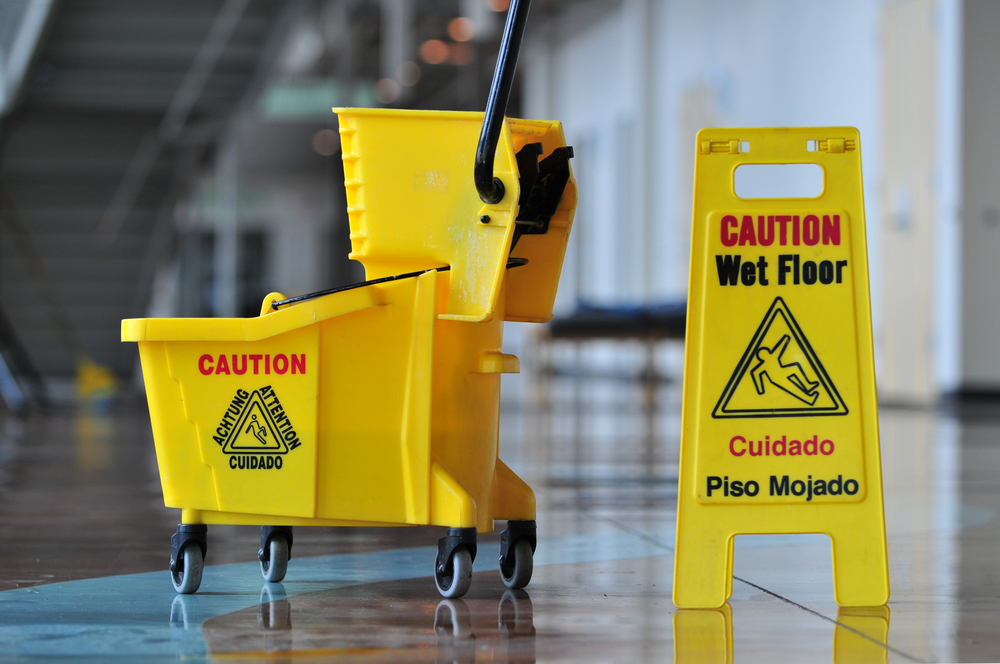Everyone has been in a store, restaurant or other business and seen warning signs about one danger or another. Whether it is a wet floor due to a rainstorm, an easy-to-miss step or even falling rock warnings on the highway, warning signs are there to let us know about potential dangers. However, simply placing a warning sign does not necessarily mean a property owner is not liable for an injury that may occur as a result of those dangers. There are several factors that go into how a warning sign affects injury liability.
Is A Warning Sign Required?
One thing to understand is that property owners sometimes place warning signs even when they are not required under the law. If now warning sign is required, even if there was one there, there is no effect on liability. The primary principle under premises liability is that the property owners may be held accountable for an injury that occurs due to negligence. You must show that the property owner breached the duty to provide reasonable care to protect you from harm.
Effect of Warning Signs
Once you have determined whether a warning sign is necessary, you must determine how that warning sign affects injury liability. A warning sign must be clearly visible and large enough to be noticed immediately. A small sign placed in an inconspicuous place that a floor is wet does not constitute a true warning sign.
If the sign is written in a language that the majority of the visitors would not understand, such as a French sign in a predominantly English business, it also does not provide adequate warning. If your injury was caused because the warning sign was not clear, the property owner may be liable for your injuries.
Why Were You On the Property?
The reason you were on the property may also have an impact on how a warning sign affects injury liability. If you are on the property for business reasons, such as a customer in a grocery store, you are considered an invitee. The property owner must use a higher degree of reasonable care for invitees than for other visitors to the property.
If you were attending a child’s birthday party and slipped on a wet floor, you are considered a licensee. In this case, the homeowner must warn or fix any potential dangers that they were aware existed, but to a lesser extent than to an invitee.
If you entered the property uninvited, you are considered a trespasser. Although the property owner cannot do anything to purposely cause harm, they do not have to warn you of any dangers that are present.
If you were injured in a slip and fall, contact Lundy Law today to learn if you qualify for a premises liability claim. Even if there were warning signs present, you may be eligible for compensation for your injuries, including lost wages, medical bills as well as pain and suffering. Complete the simple form on our website today or call 1-800-Lundy Law to arrange for your initial consultation.











